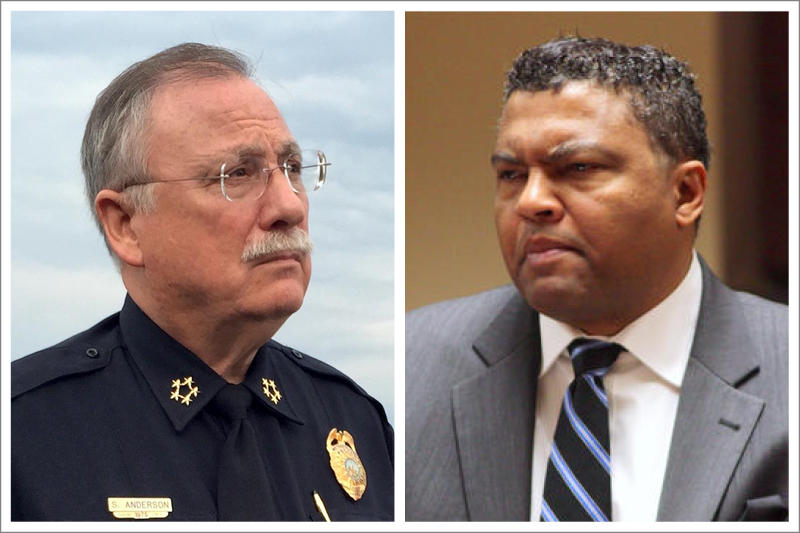
Newly published documents paint a troubling picture for the future of Nashville’s Community Oversight Board. Emails and memos posted Wednesday on the group’s website reveal growing friction between the COB and police.
Support from police is seen as essential, if the oversight board is to have any meaningful impact. But friendly cooperation seems even farther off than before.
The COB has been trying to negotiate with police a memorandum of understanding — a lengthy document that would set the protocol for how they are to work together when the COB investigates allegations of police miscondust or conducts policy reviews.
But the talks have not been going smoothly. Police Chief Steve Anderson doesn’t even think there needs to be an agreement. In an email sent to oversight director William Weeden in early October, Anderson called the memo “cumbersome” and said police had already “met the COB more than halfway.”
Metro Police, Anderson wrote, prefers to formalize all policies in the department’s official manual. The chief added a new section to the manual in August specifically dedicated to interactions between the COB and police.
The “Declaration of Cooperative Interaction with the Community Oversight Board” states that “a cooperative relationship” between the two entities “is in the best interest of the citizens of Nashville and Davidson County.” But it says that police employees are “encouraged” — not required — to participate in COB inquiries.
Members of the oversight board have criticized that policy, saying it doesn’t go far enough to ensure collaboration. And unlike the board’s proposal, which was drafted over several months with input from various community groups, the chief’s policy was written without any feedback from the COB or the public.
Anderson didn’t completely rule out the possibility of a memorandum of understanding with the oversight board. But before signing anything, Anderson wrote, he has a few questions.
Several are more technical, like whether interviews during investigations would be audio- or video-recorded. Others ask specifically about the staff investigators’ prior work experience and pre-employment background checks.
James Smallwood, the president of the local chapter of the Fraternal Order of Police, has also requested background information on all of COB members and the organization’s support staff. He told WPLN in an interview earlier this month that officers worry the people conducting COB nvestigations might not “have the appropriate knowledge of how policies and procedures impacted police officers in the community.”
“We go through a very rigorous training schedule,” Smallwood said. “You want to make sure that the people who are judging your actions, who are overseeing your actions, understand that training — that they know how it’s applied and that they can appropriately judge it moving forward.”
But when board members learned about the request at a recent meeting, they were taken aback.
“It’s kind of like they’re trying to do a witch hunt,” said board member and retired Nashville police officer Walter Holloway. “They’re trying to find out any information they can to try to destroy the credibility of the board here.”
Smallwood admits that’s he’s skeptical of the COB. The police union spent hundreds of thousands of dollars campaigning against the ballot measure that established the civilian oversight group last fall. But the president says he doesn’t plan to get in the way of the board’s negotiations with the police department.
Smallwood tried to set up a meeting with Weeden, the COB’s director, to discuss the group’s proposal to police. Weeden, however, declined the invitation.
In an emailed response, Weeden said the police union had missed its chance to offer feedback. He noted that Smallwood had been asked to take part along with other community organizations at a public meeting in September but chose not to attend.
“We cannot make unnessary special accomodations for the FOP or any other organization that was previously invited several weeks ago to participate,” Weeden wrote. “This sets a precedent that is not in line with the COB’s mission and purpose to have an MOU in place with all due efficiency and soundness.”
But Anderson condemned Weeden’s decision not to meet with the head of the police union, writing: “Knowingly or unknowingly, the message this has sent to the rank and file of the MNPD is that the proposed terms and conditions of the MOU are not subject to any discussion and that their voices will not be heard.”
Now, the oversight board is asking Mayor John Cooper to intervene in what it calls a “lack of cooperation” from Chief Anderson. A spokesperson for the mayor told WPLN Cooper is “intent” on making the relationship work.
Samantha Max is a Report for America corps member.


